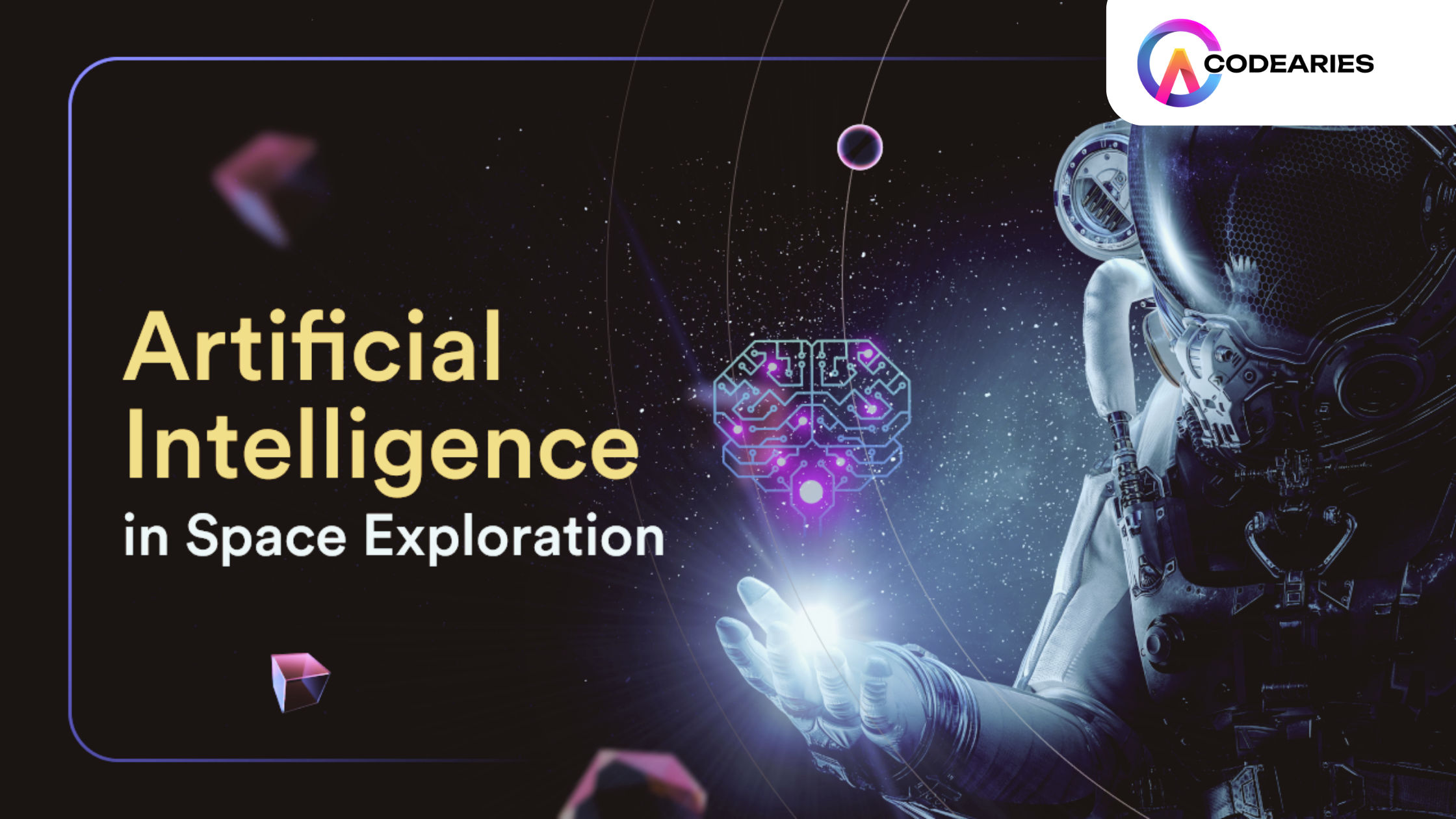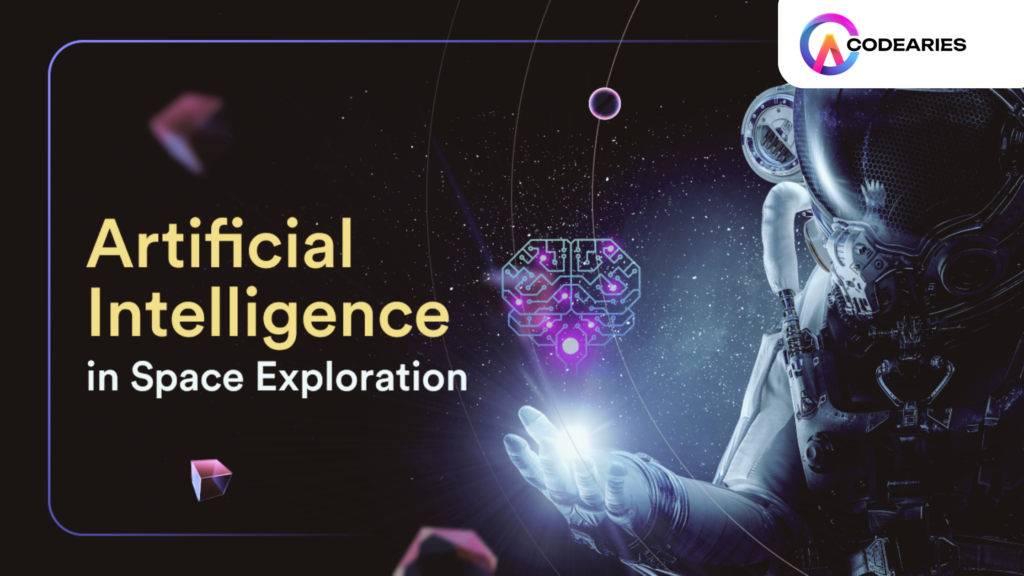
AI in Space Exploration Enhancing Missions and Discoveries

Introduction
Space, the final frontier, has always fascinated humanity with its vastness and mysteries. Today, the exploration of space is reaching new heights thanks to the integration of Artificial Intelligence (AI). AI is revolutionizing how we plan missions, operate autonomous spacecraft, and analyze data from space missions. Let us delve into the transformative role of AI in space exploration, highlight key case studies, discuss the benefits and future potential, and address the challenges and ethical considerations.
Overview of AI Applications in Space Exploration
1. Mission Planning and Simulation
AI plays a crucial role in mission planning by simulating various scenarios and optimizing mission parameters. AI algorithms can process vast amounts of data to predict the best paths, timings, and resource allocations for space missions.
Example: NASA’s Jet Propulsion Laboratory (JPL) uses AI to plan and simulate mission trajectories, ensuring efficient use of fuel and resources.
2. Autonomous Spacecraft and Robotics
AI enables spacecraft and rovers to operate autonomously, making decisions in real-time based on their environment. This autonomy is vital for missions in distant or hazardous locations where real-time human control is impossible.
Example: The Mars rovers, such as Curiosity and Perseverance, use AI to navigate the Martian surface, analyze samples, and transmit data back to Earth.
3. Data Analysis and Interpretation
Space missions generate vast amounts of data that require sophisticated analysis. AI excels in processing and interpreting this data, identifying patterns and anomalies that might be missed by human analysts.
Example: The Kepler Space Telescope has used AI to analyze data and identify exoplanets by detecting minute dips in starlight as planets pass in front of their stars.
4. Predictive Maintenance
AI can predict and preemptively address potential issues with spacecraft and equipment, reducing the risk of mission failure. Predictive maintenance algorithms analyze sensor data to foresee and mitigate problems before they occur.
Example: The International Space Station (ISS) uses AI to monitor the health of its systems, predicting failures and scheduling maintenance activities.
Case Studies of AI-Enhanced Space Missions
1. NASA’s Mars Rover Missions
NASA’s Mars rover missions, particularly Curiosity and Perseverance, showcase the power of AI in space exploration. These rovers are equipped with AI-driven systems that allow them to navigate the Martian terrain, conduct scientific experiments, and send data back to Earth autonomously.
Outcome: The use of AI has enabled these rovers to explore more of Mars than would have been possible with human control alone. They have made significant discoveries, including evidence of past water on Mars and the identification of potential signs of ancient microbial life.
2. ESA’s Gaia Mission
The European Space Agency’s (ESA) Gaia mission aims to create the most accurate map of the Milky Way galaxy. AI is used extensively to process the vast amounts of data collected by the spacecraft’s instruments.
Outcome: AI has helped Gaia catalog over a billion stars, providing unprecedented detail about their positions, distances, and movements. This data is crucial for understanding the structure and evolution of our galaxy.
3. SpaceX and Autonomous Landing
SpaceX has revolutionized space travel with its reusable rockets. AI plays a critical role in the autonomous landing of these rockets, ensuring they return safely to Earth for reuse.
Outcome: The successful autonomous landings of SpaceX’s Falcon 9 rockets have significantly reduced the cost of space missions, paving the way for more frequent and affordable space exploration.
Benefits and Future Potential of AI in Space Exploration
1. Enhanced Efficiency and Cost-Effectiveness
AI optimizes mission planning and execution, leading to more efficient use of resources and lower costs. By automating complex tasks and reducing the need for human intervention, AI makes space missions more affordable and sustainable.
Statistic: According to a study by Deloitte, AI could reduce the costs of space missions by up to 50%, making space exploration more accessible.
2. Increased Autonomy and Flexibility
AI enables spacecraft and rovers to operate autonomously, making decisions in real-time based on their surroundings. This autonomy is essential for missions to distant planets and moons, where real-time communication with Earth is not feasible.
Example: AI-driven autonomy allows rovers to navigate challenging terrains and conduct scientific experiments without waiting for instructions from Earth.
3. Improved Data Analysis and Discoveries
AI excels at processing and analyzing large datasets, identifying patterns and anomalies that might be missed by human analysts. This capability leads to more accurate and timely scientific discoveries.
Example: AI has been instrumental in identifying exoplanets, mapping galaxies, and detecting cosmic phenomena that enhance our understanding of the universe.
4. Enhanced Safety and Reliability
Predictive maintenance and real-time monitoring powered by AI improve the safety and reliability of space missions. By identifying and addressing potential issues before they become critical, AI reduces the risk of mission failures.
Example: AI-driven predictive maintenance on the ISS ensures the safety of astronauts and the longevity of the station’s equipment.
Future Challenges and Advancements
1. Evolving Complexity of AI Systems
As AI systems become more sophisticated, their complexity also increases. Developing, testing, and validating these complex systems for space missions pose significant challenges.
Challenge: Ensuring the reliability and robustness of AI systems in the harsh and unpredictable environment of space is a critical concern.
2. Data Privacy and Security
The use of AI in space exploration involves handling vast amounts of data, some of which may be sensitive. Ensuring data privacy and security is crucial to prevent unauthorized access and misuse.
Challenge: Implementing robust cybersecurity measures to protect space mission data from cyber threats.
3. Ethical Considerations
The deployment of AI in space exploration raises ethical questions about decision-making, autonomy, and accountability. Addressing these ethical considerations is essential for responsible AI deployment.
Challenge: Developing ethical guidelines and frameworks for the use of AI in space missions, ensuring that AI systems operate transparently and fairly.
4. Interdisciplinary Collaboration
AI in space exploration requires collaboration between experts in AI, aerospace engineering, astronomy, and other fields. Facilitating effective interdisciplinary collaboration is crucial for the success of AI-enhanced space missions.
Challenge: Bridging the gap between different disciplines and fostering a culture of collaboration and innovation.
Conclusion
AI is revolutionizing space exploration by enhancing mission planning, enabling autonomous spacecraft, and improving data analysis. The integration of AI in space missions offers numerous benefits, including increased efficiency, autonomy, and safety. As we look to the future, the continued advancement of AI technologies and the resolution of ethical and security challenges will be crucial for the success of AI-enhanced space exploration. By leveraging AI, we can unlock new possibilities and make significant strides in our quest to understand the universe.
How CodeAries Can Help
Blast Off with CodeAries: Your Co-Pilot in Space Innovation
At CodeAries, we’re not just about reaching for the stars; we’re about bringing the stars closer to you. Our expertise in AI and space exploration means we can help you navigate the cosmos with cutting-edge technology and innovative solutions. Here’s how we can be your co-pilot on this stellar journey:
- Custom AI Solutions for Space Missions
Our AI experts design and implement custom solutions tailored to your specific space mission needs. Whether it’s mission planning, autonomous navigation, or data analysis, we’ve got you covered.
- Mission Optimization: Use AI to plan and simulate mission trajectories, ensuring efficient use of resources and maximum mission success.
- Autonomous Systems: Develop AI-driven systems that enable spacecraft and rovers to operate independently, making real-time decisions based on their environment.
- Advanced Data Analytics
Harness the power of big data with our advanced analytics solutions. We help you process and interpret vast amounts of space mission data, uncovering insights that drive discoveries.
- Data Mining: Use AI to analyze data from satellites, rovers, and telescopes, identifying patterns and anomalies that lead to groundbreaking discoveries.
- Predictive Analysis: Implement machine learning algorithms to predict potential issues and optimize mission performance.
- Predictive Maintenance and Reliability
Ensure the safety and reliability of your space missions with our predictive maintenance solutions. We use AI to monitor equipment health and predict failures before they occur.
- Real-Time Monitoring: Implement AI-driven systems that continuously monitor the health of spacecraft and equipment, providing real-time alerts and insights.
- Preventive Measures: Use predictive maintenance algorithms to schedule maintenance activities, reducing the risk of mission failures.
- Ethical and Secure AI Implementation
We prioritize ethical and secure AI deployment, ensuring that your space missions are conducted responsibly and securely.
- Ethical AI Guidelines: Develop ethical frameworks for the use of AI in space exploration, ensuring transparency and accountability.
- Cybersecurity Measures: Implement robust security protocols to protect mission data from cyber threats.
Get in Touch with CodeAries!
Ready to embark on your next space mission with the power of AI? At CodeAries, we’re here to help you explore new frontiers and achieve stellar success. Contact us at contact@codearies.com or reach out on WhatsApp at +91 8826636700. Let’s take your space exploration to new heights!
With CodeAries, the sky is not the limit—it’s just the beginning. Let’s make history together!
Frequently Asked Questions
1. How does AI improve space exploration?
AI improves space exploration by optimizing mission planning, enabling autonomous operation of spacecraft and rovers, and enhancing data analysis. This leads to more efficient, safe, and successful space missions.
2. Can you provide examples of AI in space missions?
Examples include NASA’s Mars rover missions, which use AI for autonomous navigation and data analysis, and ESA’s Gaia mission, which uses AI to process vast amounts of astronomical data.
3. What are the benefits of using AI in space exploration?
Benefits include enhanced mission efficiency, increased autonomy for spacecraft, improved data analysis leading to new discoveries, predictive maintenance, and cost-effectiveness.
4. What future advancements can we expect in AI for space exploration?
Future advancements may include more sophisticated autonomous systems, better integration with other emerging technologies like quantum computing, enhanced predictive analytics, and improved real-time decision-making capabilities.
5. What are the challenges of implementing AI in space missions?
Challenges include the complexity of developing reliable AI systems, ensuring data privacy and security, addressing ethical considerations, and fostering interdisciplinary collaboration among AI, aerospace, and astronomy experts.
6. How does AI help with autonomous spacecraft and rovers?
AI enables autonomous spacecraft and rovers to make real-time decisions based on their environment, navigate challenging terrains, conduct scientific experiments, and transmit data back to Earth without waiting for human commands.
7. How does AI assist in mission planning for space exploration?
AI assists in mission planning by simulating various scenarios, optimizing trajectories, and resource allocations, predicting potential issues, and ensuring the efficient use of time and resources.


